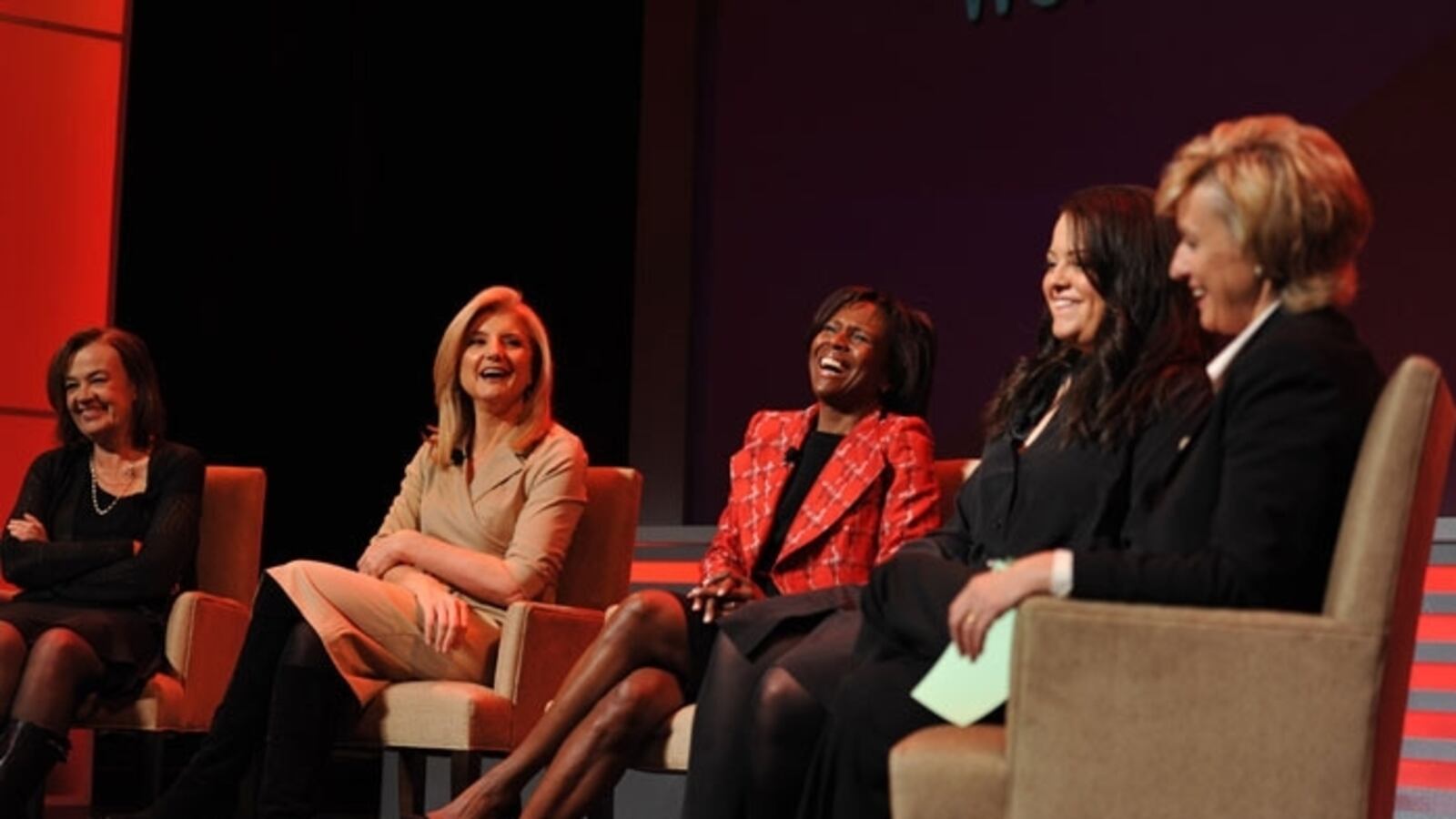Women have made all sorts of leaps and bounds over the last half-century, but a panel on media Saturday offered a frank level of discussion about where things have fallen short.Arianna Huffington noted that when her website, The Huffington Post, started up five years ago, she found that her male friends were far more likely to embrace blogging than women. “Every man I invited said, ‘yes, of course’ and my women friends were really nervous about blogging unless they were journalists,” she said.She came to conclude that the reason for this is that “women still have a problem with being judged. Much more than men. And anything we write, anything we do is going to be judged.”

Deborah Roberts of ABC said that as a journalist with the network, she finds a certain divide between what women say they want to watch and what they actually watch. “Women say one thing but do another when they watch television,” she said, “I know I’m not working for NPR, that might be so easy these days, but the point is these stories we do, one story we did that rated highly was about a teenage murderer, a young igrl. It’s the same idea as reality TV. People want to see the weird twisted stuff or Charlie Sheen, but our Global Health Initiative stuff didn’t rate. There’s a lot of doublespeak. They want escapism even in news.”Anna Holmes, the founding editor of Jezebel, a website that devotes a fair amount of space both to Lindsay Lohan and women in Egypt, said that when she first conceived Jezebel, she was reacting to women’s magazines she’d worked at. “I was seeing content for women, but it was junk food. Glamour was a very good magazine when I was growing up; the time I was there it wasn’t as good. There was way too much about getting a man, keeping a man, pleasing a man, body image… I thought, if I can’t do it in print I’ll do it online…”One of the things that enscapsulates her site’s loftier ideals and its baser instincts was a feature called "PhotoShop of horrors,” which offered up photos of female stars and how their pictures had been digitally altered. “We offered a bounty,” to get the photos, Holmes said, and it became a major source of traffic on the site.Tina Brown, Newsweek and The Daily Beast’s editor in chief, who moderated the panel, didn’t dispute the notion that these altered images make it harder for women to attain their ideals, but she said she had a tough time getting worked up over it. When she gets photographed, Brown joked, “the first words out of my mouth are, 'Am I going to be retouched?'"Judy McGrath of MTV, meanwhile, spoke about reality TV and how perhaps Jersey Shore wasn’t really anti-feminist after all. She noted reading an editorial about how the men on the show are all into “gym, tan, laundry” while the women are not. “The men do the cooking,” she added.






